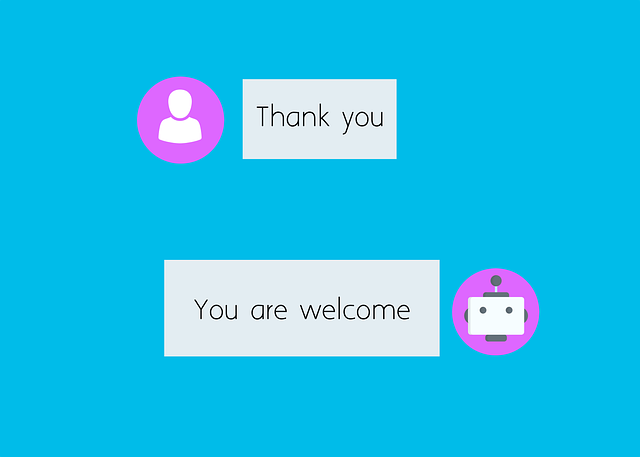Ecommerce AI chatbots enhance customer experiences by offering instant support, personalized product recommendations, and 24/7 availability. Leveraging natural language processing and machine learning, these virtual assistants adapt to user preferences, reducing cart abandonment rates and driving sales. Implementing an ecommerce AI chatbot improves performance, allows human agents to focus on complex issues, and fosters brand loyalty through customized interactions. Selecting the right chatbot involves understanding specific needs, evaluating NLP capabilities, CRM integration, and cost-effectiveness. Future advancements promise even more personalized shopping experiences globally.
Discover the transformative power of ecommerce AI chatbots in revolutionizing your online store. This comprehensive guide delves into the fundamentals, benefits, and implementation strategies of these intelligent assistants. Learn how AI-powered chatbots enhance customer interactions, drive sales, and provide personalized support. From understanding core concepts to choosing the right fit for your platform, explore key insights shaping the future of ecommerce ai chatbot integration and best practices to maximize their potential.
- Understanding Ecommerce AI Chatbots: The Basics
- Key Benefits of Implementing an Ecommerce AI Chatbot
- How Ecommerce AI Chatbots Enhance Customer Experience
- Choosing the Right AI Chatbot for Your Ecommerce Platform
- Future Prospects and Best Practices for Ecommerce AI Chatbots
Understanding Ecommerce AI Chatbots: The Basics

Ecommerce AI chatbots are innovative tools that revolutionize customer interactions, offering instant support and personalized shopping experiences. These virtual assistants leverage artificial intelligence to understand and respond to customer inquiries in natural language. By integrating with online stores, they provide 24/7 availability, addressing product queries, offering recommendations, and even assisting with basic checkout processes.
The basics of an ecommerce AI chatbot involve a sophisticated algorithm that analyzes customer messages, identifies intent, and generates contextually relevant responses. They learn from customer interactions, adapting to individual preferences and improving over time. This technology enhances user satisfaction, reduces cart abandonment rates, and increases sales by creating a seamless and engaging shopping journey.
Key Benefits of Implementing an Ecommerce AI Chatbot

Implementing an ecommerce AI chatbot offers a multitude of benefits that can significantly enhance your online store’s performance and customer experience. These intelligent assistants are designed to engage with shoppers in real-time, providing instant support and answering queries promptly. By handling basic customer inquiries, product recommendations, and even post-purchase follow-ups, an ecommerce AI chatbot frees up human agents to focus on more complex issues, leading to improved operational efficiency.
Moreover, these chatbots leverage machine learning algorithms to gather and analyze customer data, offering personalized interactions that can drive sales. They can suggest relevant products based on browsing history, past purchases, or even current trends, increasing the likelihood of conversions. This level of customization also fosters a sense of connection with customers, making them feel valued and understood, which is essential for building brand loyalty in today’s competitive market.
How Ecommerce AI Chatbots Enhance Customer Experience

Ecommerce AI chatbots are transforming the way businesses interact with their customers, offering a more personalized and efficient shopping experience. These intelligent virtual assistants can handle various tasks, from answering product queries to providing recommendations, thereby reducing response times and increasing customer satisfaction. With natural language processing capabilities, they understand customer intent, ensuring relevant interactions that feel human-like.
By integrating an ecommerce AI chatbot on your website, you enable 24/7 customer support, instant issue resolution, and a seamless browsing experience. They can guide customers through product categories, offer detailed information about items, and even assist with purchasing decisions by sharing user reviews or comparing similar products. This level of interaction builds trust, encourages sales, and fosters long-term customer relationships.
Choosing the Right AI Chatbot for Your Ecommerce Platform

When selecting an eCommerce AI chatbot, it’s crucial to align your choice with your platform’s unique needs and user base. Not all chatbots are created equal; some excel in customer service while others focus on sales and product recommendations. For instance, a commerce ai chatbot designed for personalized product suggestions will be less effective at handling complex customer inquiries. Look for features like natural language processing, integration with your existing systems (like CRM and inventory management), and adaptability to different user interactions.
Consider the type of support you want to offer customers: 24/7 assistance, quick answer times, or a blend of both. Some chatbots can handle simple queries independently, freeing up human agents for more complex issues. Additionally, evaluate your budget and scale; there are options catering to startups with limited budgets as well as enterprises requiring advanced customization. Ultimately, the ideal ecommerce ai chatbot should enhance customer experience, drive sales, and provide valuable insights into customer behavior without breaking the bank.
Future Prospects and Best Practices for Ecommerce AI Chatbots

The future of ecommerce AI chatbots looks promising as technology advances and consumer expectations evolve. With ongoing advancements in natural language processing, these chatbots are set to become even more sophisticated, offering personalized shopping experiences and real-time assistance to customers worldwide. Imagine a chatbot that can predict customer preferences, suggest relevant products, and provide tailored recommendations based on individual browsing history. Such capabilities could significantly enhance user engagement and boost sales conversions.
Best practices for implementing ecommerce AI chatbots involve ensuring seamless integration with existing systems, prioritizing data privacy and security, and continuously training models to improve accuracy and context understanding. Developers should focus on creating conversational flows that feel natural and human-like, while also enabling quick access to product information, customer service, and after-sales support. Regular updates based on user feedback and analytics will be crucial to keeping the chatbots effective and relevant in a rapidly changing retail landscape.
Ecommerce AI chatbots are no longer a futuristic concept but an essential tool for enhancing customer engagement and satisfaction. By understanding their basics, leveraging key benefits, and implementing them strategically on your platform, businesses can significantly improve their online retail experience. As the technology advances, adopting best practices and staying informed about future prospects will ensure that ecommerce ai chatbots continue to drive success in a competitive digital landscape.
